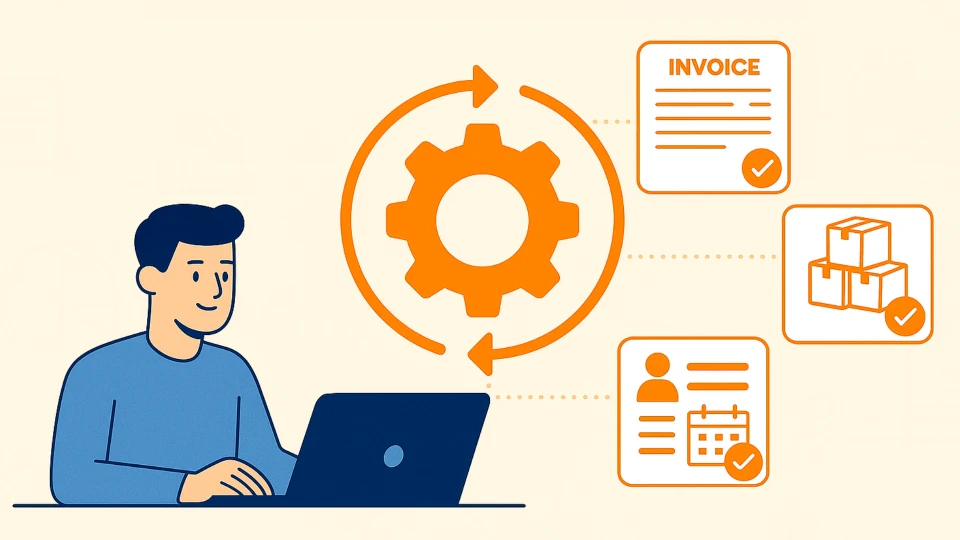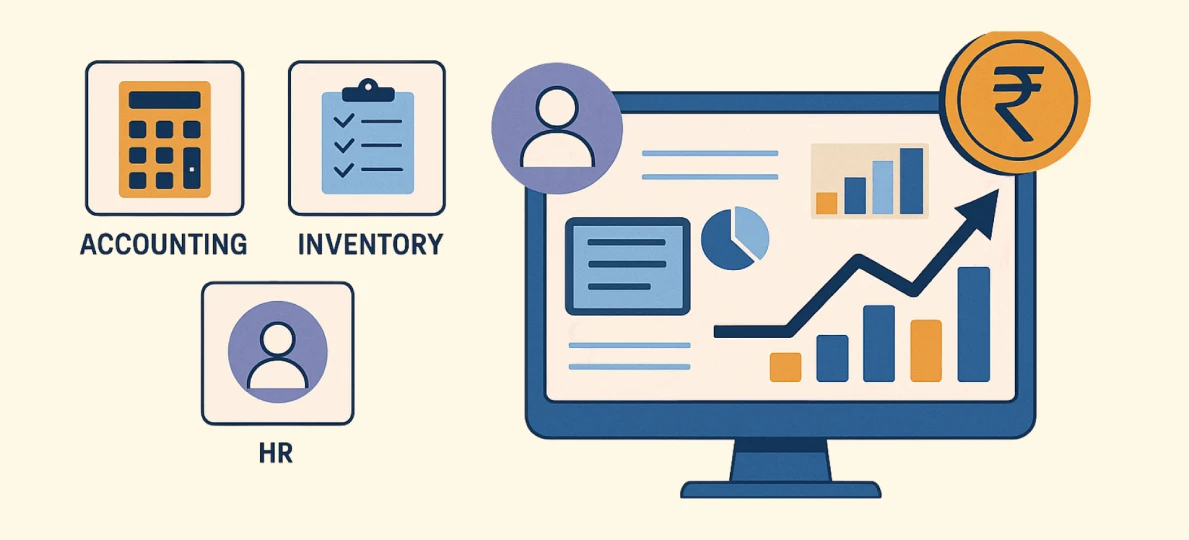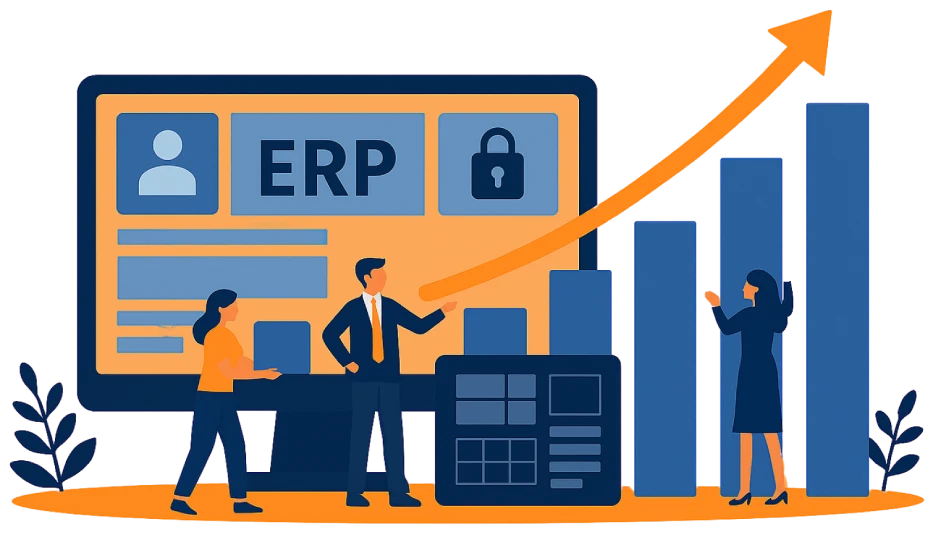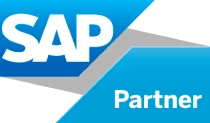Running a business today means dealing with rising operational costs, scattered data, and time-consuming manual processes. These issues can slow down teams, lead to errors, and reduce overall productivity. That’s why many companies are turning to custom ERP software to streamline operations. Instead of adjusting your business to fit generic tools, a tailored ERP system adapts to how you work, making everyday tasks faster and smoother.
From managing sales and inventory to finance and HR, the right ERP setup connects everything in one place. It removes repetitive tasks, reduces confusion, and helps decision-makers focus on growth.
In this blog, we’ll share five practical ways a custom ERP solution can save your business both time and money, while keeping processes easy to manage and scale.
We’ll also show how investing in the right CRM and ERP service supports long-term success.
Point 1: Automates Repetitive Business Processes
One of the biggest time-wasters in any business is manual data entry. Whether it’s handling invoices, updating inventory, or processing payroll, these repetitive tasks slow teams down and often lead to human error.
With custom ERP software, many of these routine processes can be fully automated. That means fewer mistakes, faster workflows, and more time for strategic work.
For example, an ERP system can:
- Automatically generate and send invoices
- Track inventory levels and reorder stock when needed
- Process employee leave requests and approvals
- Sync financial reports and reconcile accounts
- Schedule maintenance tasks based on usage data
By cutting down on manual tasks, your team spends less time on admin and more time on things that grow the business.
Integrating automation also improves accuracy, which helps avoid delays, duplicate work, and compliance issues.
These benefits only increase when your ERP system is supported by Managed IT Services, ensuring everything runs smoothly in the background while your team stays focused on what matters most.

Point 2: Centralizes Data and Improves Decision-Making
Switching between spreadsheets, disconnected apps, and outdated reports slows teams down. This kind of fragmented data setup often leads to confusion, errors, and missed opportunities.
With custom ERP software, all your business data is stored in one place. Whether it’s sales numbers, stock levels, or customer records, teams get access to the same real-time information through a custom ERP dashboard.
This kind of visibility helps different departments work together more effectively and make faster, smarter decisions.
For example:
- Sales teams can see real-time inventory levels before promising delivery
- Finance can track cash flow across departments without requesting updates
- Managers can view performance dashboards during team reviews
- Warehouse staff can spot supply chain delays early
Centralized data also supports forecasting and long-term planning.
And when your ERP runs on secure Cloud Solutions, your data becomes more accessible to remote teams and protected from system failures.
Instead of wasting time cross-checking numbers, your team can focus on solving problems and moving the business forward.
Point 3: Reduces Operational Costs
Running a business often means juggling multiple tools. One for accounting, another for inventory, something else for HR. These third-party apps may seem affordable at first, but over time, they lead to high monthly bills, data silos, and costly errors.
Custom ERP software simplifies this.
By combining all essential functions into a single platform, businesses cut down on:
- Extra software subscriptions
- Manual entry mistakes that lead to rework
- Delays caused by poor communication
- Duplicate or inconsistent data
Let’s say your team uses four different tools, each costing ₹1,500 per month. That adds up to ₹6,000 every month. A single ERP system with better integration could reduce this by half or more. Over a year, that’s a potential saving of ₹36,000 or more just on software costs.
But the bigger benefit? Efficiency. When teams work faster with fewer errors, your hidden costs drop too.
ERP cost savings are not only about cutting tools. They also come from smoother workflows, reduced employee hours spent on admin tasks, and fewer expensive mistakes.
The upfront investment in custom ERP often pays for itself within the first year.

Point 4: Improves Team Productivity Across Departments
When departments use different tools or spreadsheets, it creates confusion. Sales might be waiting on Finance. HR may not have updated info from Operations. These delays slow down the entire business.
ERP for team collaboration solves this by connecting everyone on one system.
With custom ERP software, departments can:
- Track tasks and approvals in real-time
- Get alerts for pending actions
- Share files and updates across teams
- Avoid back-and-forth emails or manual follow-ups
Example:
- A sales team sends a client quote for approval. Without an ERP, they email Finance and wait. With ERP, the quote moves automatically to Finance for review, with status updates and approval tracking built in. Less waiting, more closing.
This smoother communication leads to:
- Faster decisions
- Fewer mistakes
- Happier teams and customers
When everyone uses the same platform, there’s less confusion and more action. Collaboration becomes a natural part of the workflow, not a challenge.
A connected team is a productive team.
Point 5: Supports Business Growth Without Added Chaos
As your business grows, managing more people, data, and tasks can become overwhelming. But with the right custom ERP software, growth doesn’t have to mean added complexity.
A scalable ERP system grows with your team and workflows. You don’t need to replace it every time you expand. Instead, you can build on it by adding new modules, users, or features as needed.
This helps you avoid:
- Data duplication
- Miscommunication across teams
- Manual processes that don’t scale
Key features that support seamless scaling:
- User roles to define access and responsibilities
- Permission-based access for security and clarity
- Modular design to add features when required
For example, when a company expands to new locations, the same ERP can handle multi-location inventory, finance, and operations without needing a full system overhaul.
Pairing your ERP with Simplified IoT Solutions can take this even further by adding real-time tracking and smart automation across departments.
The result is faster scaling, smoother operations, and fewer growing pains.

Conclusion
Custom ERP software is not just a trend. It’s a practical tool that helps businesses work smarter and scale smoothly. Let’s quickly recap how it saves both time and money:
- Automates routine tasks like invoicing, payroll, and inventory updates
- Centralizes data for faster, better decision-making
- Reduces operational costs by cutting third-party tools and errors
- Improves team collaboration with shared workflows and real-time updates
- Supports growth without overwhelming your team or system
While a custom ERP may need upfront investment, the long-term ROI often outweighs the initial setup costs. It’s a smarter choice for companies that want flexibility, control, and smoother operations as they scale.
If you’re considering implementing or upgrading your ERP, now is the time to explore how a system tailored to your needs can transform your business.
Have questions or want to see what this could look like for your team? Get in Touch with us and let’s discuss the best way forward for your business.

